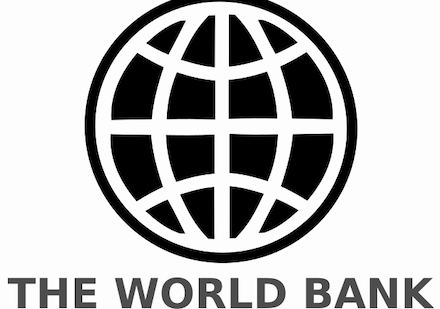[The View From Uganda]
In recent weeks, the World Bank has been carrying out its Systematic Country Diagnostic (SCD) report on Uganda. This whitepaper is prepared in consultation with the Uganda government and other stakeholders. According to the World Bank “the SCD is a diagnostic exercise to identify key challenges and opportunities for a country to accelerate progress towards development objectives that are consistent with the twin goals of ending absolute poverty and boosting shared prosperity in a sustainable manner.”
We appreciate the World Bank’s efforts to end “absolute poverty”, and its attempts to end poverty absolutely. However, it is hoped that one day the parameters of its activity are expanded to expose the sense of entitlement of our leaders. This self-entitled attitude leaves them mentally impoverished and thus incapable of discharging their duties.
To be sure, it is whispered amongst Bank of Uganda and Uganda Revenue Authority officials that Gen. Museveni takes the pay-as-you-earn tax (PAYE), paid to government by long-suffering Ugandan tax payers, straight to his State House kitty.
So, as the Ugandan taxpayer renders unto Caesar, Gen. Museveni uses that same money to subjugate the Ugandan taxpayer never to rise up against the past and ongoing gross violations of human rights. Statehouse employees in Entebbe, when they get the chance, attempt to steal from the strongrooms scattered around its premises. Strongrooms which only Gen. Museveni wields the keys for.
An impoverished outlook makes Gen. Museveni think money will save his regime from the abyss. Yet we all recall pictures of a bearded, disheveled 66-year-old Saddam Hussein hiding in an 8-by-10-foot-wide, 6-to-8-foot deep “spider hole” while clutching $750,000 in U.S. currency.
Anyway, until the time the World Bank is ready to switch to a diagnostic-prognostic approach to the psychoses of Ugandan leaders, we can hope the Bank’s SCD will suffice.
In the harsh light of Covid-19’s dim realities, World Bank should take its foot off the brakes with regard to its austerity policies which restrict any stimulus package to businesspersons, alongside policies which boost critical public employment.
As to the latter, the World Bank/IMF has favored a freeze on public employment in the past few years; yet employment in Uganda is at an all-time low. Funds should thus be made available to a multiplicity of government-affiliated agencies, so that people are employed by these agencies and they can inject their disposal incomes into the economy.
Money should not only be available for Covid-19 relief. Non-tied emergency financing must be rolled out to a country which is on its knees.
Hopefully, pressure will be brought to bear so that such funding is strictly monitored and is also channeled to Non-Government Organizations on the ground. This assistance must also be rights-based in that the Ugandan government is made aware that it has a range of human rights obligations to fulfill before it can get any assistance.
At the moment, the country is being terrorized by Gen. Museveni’s overweening ambition to stay in office on pain of democratic collapse. This SCD report must also expose the impact of Uganda government’s over-reliance on the private financial sector to drive the economy, as the same government sits back, collects taxes then misappropriates and misuses them.
Corruption in Uganda is a subsystem whose wellspring is a ruling cabal of Museveni loyalists hell-bent on continuing unsustainable development models. These models are driven by a Mafiosi moral code, which skews policy choices in favor of said cabal. This results in unfair rules of engagement between government and her stakeholders simply because government policies are dictated by cabalist financial interests.
During the global pandemic (and possibly long after), the World Bank, jointly with the International Finance Corporation (the World Bank’s private sector investment arm), should use its Country Private Sector Diagnostic (CPSD) tool to influence development policy to promote twin approaches. Namely public-sector and private-sector development approaches, since a Keynesian approach alongside non-interventionist measures (applied contingently and not a priori) is vital in times of economic crises.
Most importantly, the World Bank must understand that the government of Uganda and the people of Uganda do not share identical interests. In fact, most of what Gen. Museveni proposes revolves around regime survival, which is inimical to our genuine development goals.
The World Bank must realize that Gen. Museveni wants its assistance in order to buttress his massive neo-patrimonial state. Just look at how many state agencies are duplicated, districts created and how the intelligence services have become a hydra-headed monster.
For instance, Internal Security Organization (ISO) has structures spread throughout the country i.e Parish (PISO), Sub-county (GISO), District (DISO), Region (RISO) and national level (Director General) who feeds Museveni. Again, Military Intelligence is ubiquitous. Every Unit has an Intelligence Officer and it has even created Zonal Intelligence Officers who man areas that have a paucity presence of military units. These Intelligence officers are stationed at independent units, Battalion, Brigade, and Division up to the headquarters (CMI).
And this is just the tip of the iceberg. In fine, the World Bank’s SCD must be anchored on demanding accountability towards economic relief and transparency in the way governance is used as a tool to ensure such relief.
Right now, the country is in shambles. And not because it has to be, but because it happens to be exactly the way Gen. Museveni likes it.
The columnist can be reached via mugashop74@gmial.com








